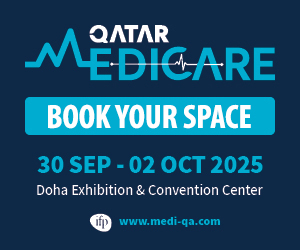The Middle East’s pharmaceutical sector is on a strong growth trajectory, with the market projected to hit $36 billion by 2028, according to JLL’s latest EMEA Life Sciences Industry Perspective and Cluster Report.
This surge is underpinned by robust government investments in R&D infrastructure, manufacturing capabilities, and digital transformation. From 2023, the industry is forecast to expand at a compound annual growth rate (CAGR) of 7.7%.
The report highlights the Gulf Cooperation Council’s strategic efforts to boost domestic production, cut reliance on imports, and diversify economic foundations.
Transforming Into a Life Sciences Hub
For the first time, JLL’s research takes an in-depth look at the Middle East’s emergence as a life sciences center, spanning biopharmaceutical R&D, digital health, and pharmaceutical manufacturing.
These shifts are driving demand for specialized real estate, including flexible research labs, cutting-edge production facilities, and digital health infrastructure.
“Innovation is now the linchpin of life sciences success,” said Mireille Azzam, Head of Strategic Consulting for JLL Middle East and Africa. “The GCC is investing heavily in nurturing entrepreneurial ventures and building collaborative ecosystems to advance research and grow its skilled workforce.”
She added that a greater emphasis on adaptable lab designs and resilient, efficient buildings is fueling a dynamic property market to meet scientific and commercial needs.
Trends Powering Growth
Several factors are accelerating the sector’s momentum:
Government incentives supporting local drug production and biosimilar development
Growing rates of chronic illness and demand for personalized treatments
Strong adoption of telemedicine, AI-driven diagnostics, and remote monitoring
Rising venture capital flows and AI-enabled innovation across laboratories and supply chains
Strategic locations offering advanced logistics and sustainable infrastructure
The report underscores how GCC nations are rapidly evolving into regional centers for:
Biopharma research and development
Digital health innovation
Pharmaceutical manufacturing
A notable shift is underway from publicly owned or occupier-led labs to investor-backed facilities, addressing long-standing shortages of modern lab space. JLL points out that the market now prioritizes next-generation laboratories with resilient systems and sustainable designs.
This transformation positions the Gulf alongside established life sciences clusters such as the UK’s Golden Triangle, Singapore, and Johannesburg.
Academic institutions also play a pivotal role, with King Saud University, Qatar University, and UAE University gaining recognition in global life sciences rankings.
Source: arabianbusiness.com










































































